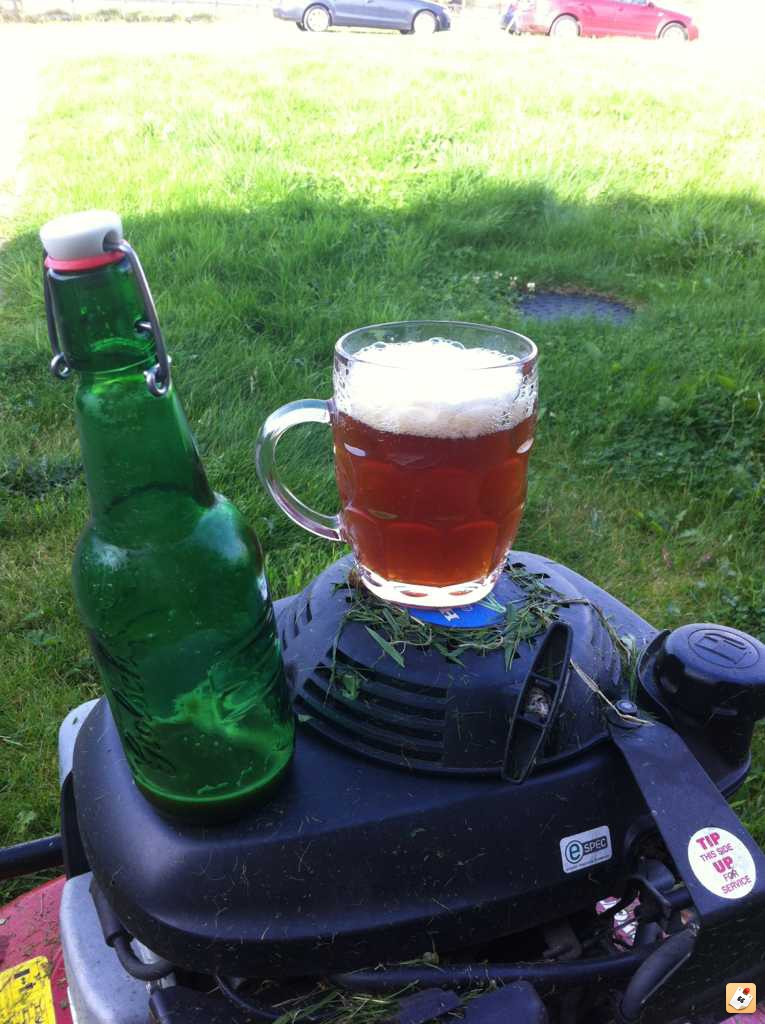darrellm said:
I used to buy a couple of bottle conditioned ales before I started homebrewing, but more often than not they'd be too lively and foam out of the bottle as soon as it was openned. Be lucky to get 1/2 pint remaining :shock:
The brewers seemed to struggle to get consistency, this has never happened with any of my brews so wonder if they just bottled too early or over-primed?
I don't know whether you used to buy your beers direct from the brewery or from retail outlets. I bet you treat your bottled beers as carefully as I do and get great results because of it?
Something to consider though is how the bottles get treated AFTER they leave the brewery.
A friend of mine runs a micro. He sells a small number of bottle conditioned beers. He follows the same regime that we do at home. Batch priming for consistency. In the warm for 2 weeks. Into the cold store at 12 degrees for a few weeks/months to settle, mature, sediment to pack down.
It is once the bottle leave him and go to the shops that the problems start to occur.
Prime example. The deli in his town went mad to stock his beers. He explained they are bottle conditioned and thus need to be stored reasonably cool ideally no more than 14 degrees and displayed in a similar manner. Every time he goes in to the shop to deliver stock he finds the beers on the top shelf of the display unit almost in the window getting a decent dose of sunshine and heat. The result? the deli customers moan they keep getting gushers and not just from bottles of his beer. The shop have still not changed the positioning of the beers they stock. It is entirely the Deli's poor handling of the beer that is causing the problem.
We are all guilty at times of blaming the brewer but more often than not the problems have all occurred after the brewer has delivered the product and handed over responsibility.
Another example..... better half and I went for a pub lunch on a lovely sunny afternoon no more than three weeks ago. As we walked into the pub I spotted an unopened cask of beer from my mates micro sat outside. Chatted to the landlord and he said "oh yeah.. your mate was here delivering that cask about 2 hours ago.... you've not long missed him!"
So time wise :
Midday cask delivered.
2pm we walk in for lunch.
4pm we leave pub and landlord locks up and goes for a snooze before opening at 7pm
Sun shining. Cask sat outside in blazing sunshine from midday until maybe 6pm when landlord remembered to bring it in?
I know that the cask would have been in peak condition when it was loaded onto the drey that morning and delivered to that pub.... My pal would have offered to have put cask straight into the cellar...
I can only imagine what effect 5 or 6 hours sat in the sun will have had on it!?!?!?
And I bet it was all the breweries fault that the beer was off!
Not ranting at anyone at all.... just trying to present a different viewpoint on things :) :thumb:
This lack of control once the product leaves the brewery may also be a reason why many breweries don't do bottle conditioned beers and stick to filtered and carb'd.




























![BREWING THERMOMETER STICKERS ACCURATELY MONITOR FERMENTING BEER & WINE LIQUID TEMPERATURES 5PCS HOME BREW SPIRITS WINE LCD ADHESIVE [US]](https://m.media-amazon.com/images/I/311DDjo2X3L._SL500_.jpg)














